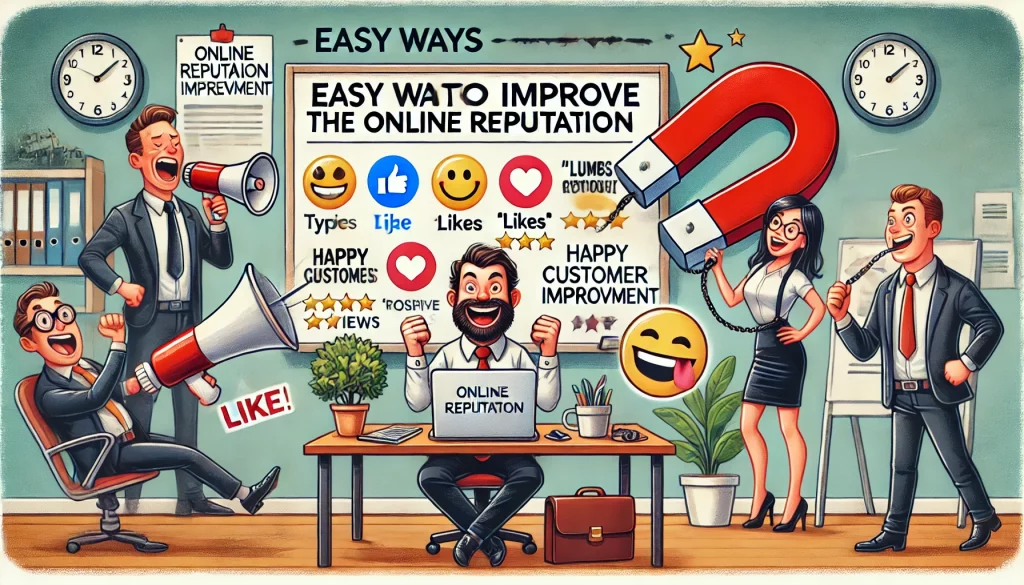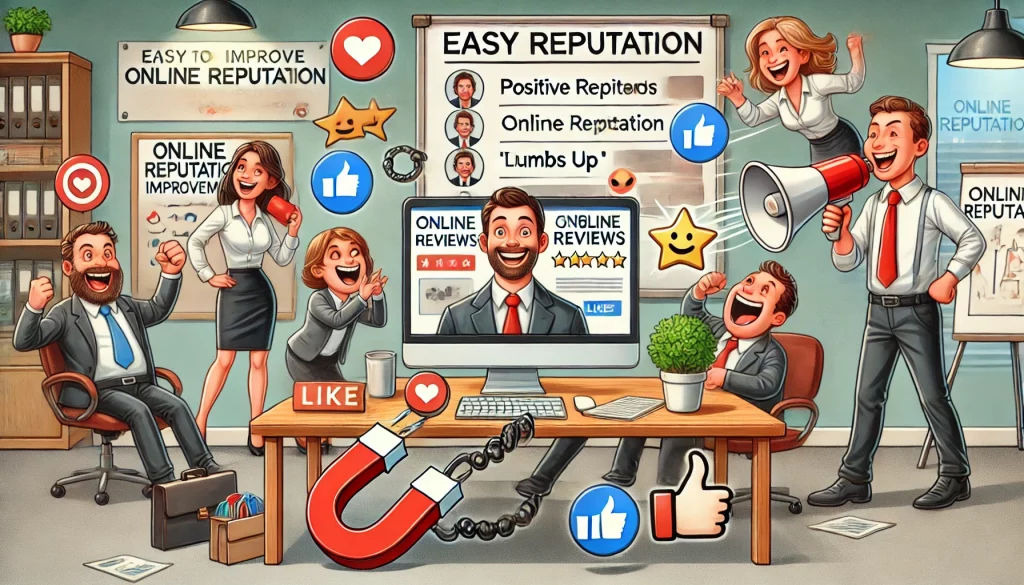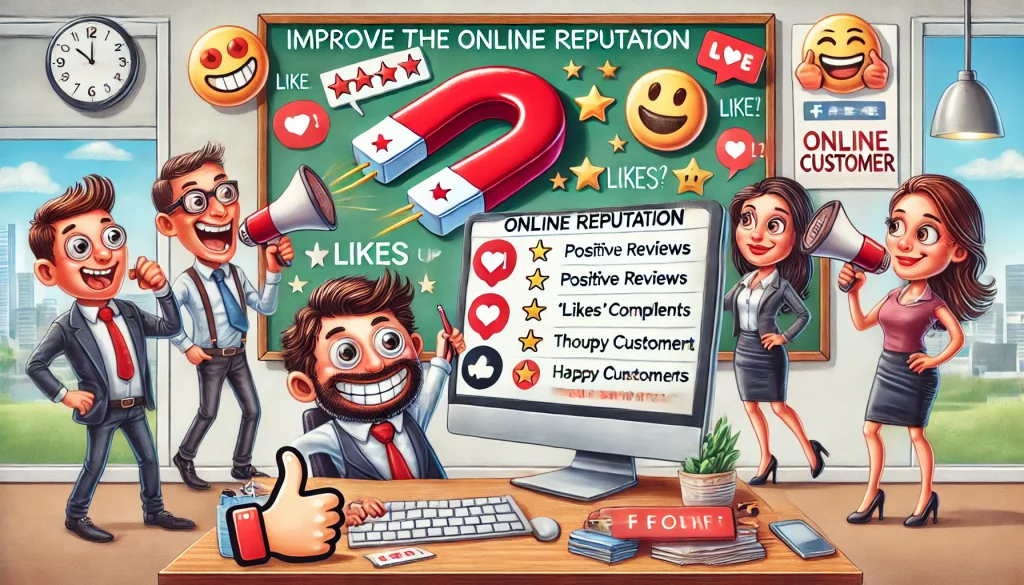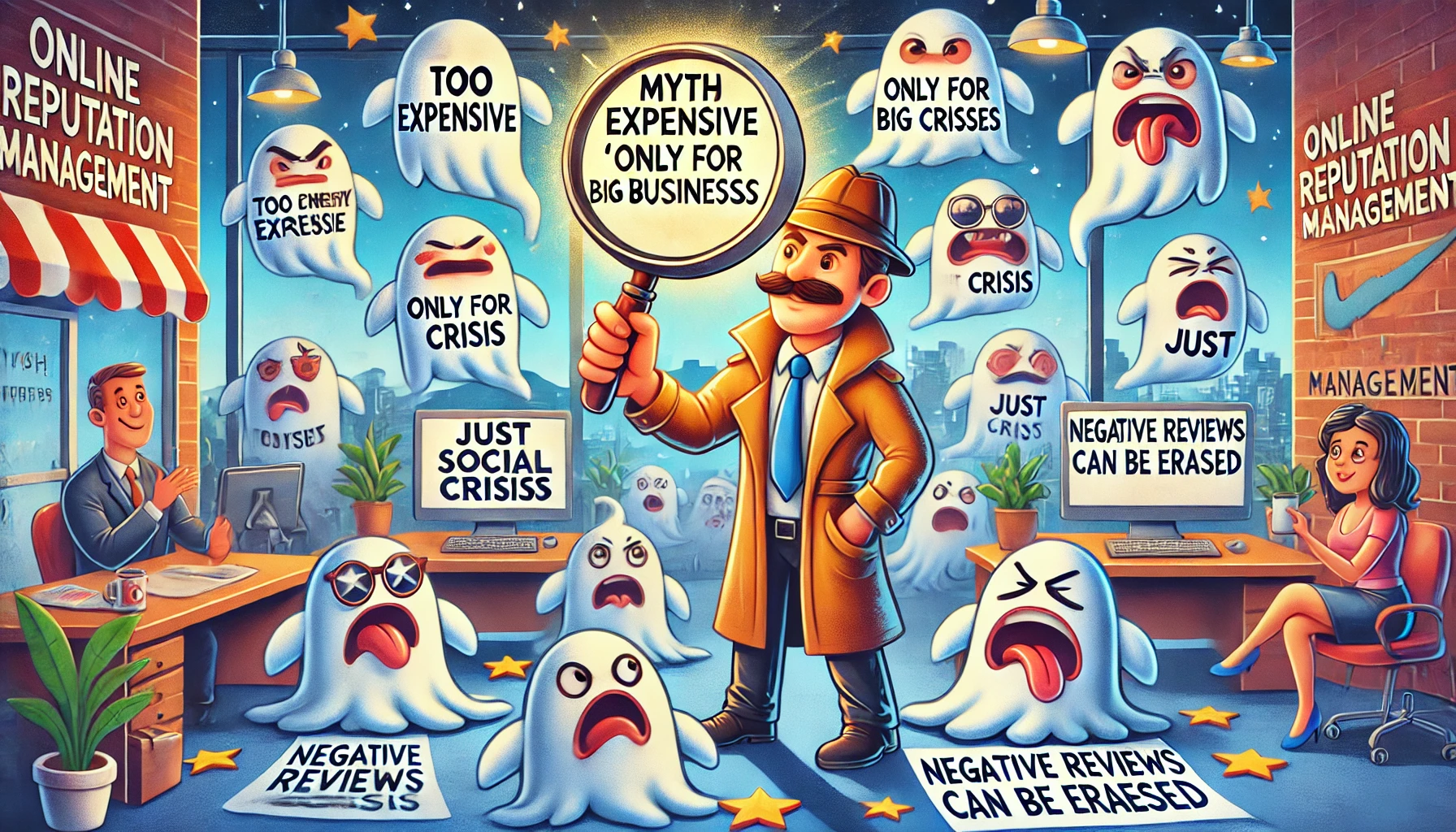Boost your business’s online reputation: Attract customers, increase trust

In today’s digital age, a business’s online reputation can make or break its success. The internet has become the first point of contact between businesses and potential customers, making digital reputation more crucial than ever.
A strong online presence can attract new clients, build trust, and weather economic challenges, while a poor reputation can deter customers regardless of the quality of your products or services.
The psychology of online reviews
How consumers interpret and use online reviews
Online reviews play a crucial role in shaping consumer perceptions and decision-making processes. Studies show that 88% of consumers trust online reviews as much as personal recommendations.
Consumers often use reviews as a form of social proof, relying on the experiences of others to guide their own choices. When interpreting reviews, consumers tend to look for patterns rather than focusing on individual opinions.
They often pay attention to the overall rating, the number of reviews, and the recency of feedback. Consumers also tend to read between the lines, looking for authenticity in reviews.
They are more likely to trust reviews that provide specific details about the product or service experience. Interestingly, many consumers actively seek out negative reviews to understand potential drawbacks, viewing overly positive profiles with skepticism.
The impact of negative vs. positive reviews
While positive reviews are undoubtedly beneficial, negative reviews can have a disproportionate impact on consumer perceptions. This phenomenon, known as negativity bias, means that consumers often give more weight to negative information than positive.
Research shows that it takes approximately 40 positive customer experiences to undo the damage of a single negative review.

Main strategies
Develop or refresh your website
Creating a new website: If your business lacks an online presence, creating a website should be your top priority. A well-designed website serves as your digital storefront, providing potential customers with essential information about your products or services.
According to a study by Stanford, 75% of users make judgments about a company’s credibility based on their website design.
Updating an existing site: For businesses with existing websites, regular updates are crucial. Ensure your site reflects your current offerings, pricing, and contact information.
A modern, user-friendly design can significantly improve visitor engagement. Sites with updated content experience a 13% increase in web traffic.
Optimizing for search engines: Implement basic SEO strategies to improve your website’s visibility in search results. This includes using relevant keywords, creating quality content, and ensuring your site is mobile-friendly.
Google reports that mobile-friendly websites are more likely to rank higher in search results.
Sharing your website: Promote your website across various platforms, including social media, business cards, and email signatures. This increases visibility and drives traffic to your site.
Enhance your review site presence
Identifying key review platforms: Determine which review sites are most relevant to your industry. While platforms like Google, Yelp, and Facebook are universally important, some industries have specific review sites that carry significant weight.
For instance, TripAdvisor is crucial for the hospitality industry.
Claiming and optimizing business profiles: Claim your business profiles on these platforms and ensure all information is accurate and up-to-date. Add high-quality photos and detailed descriptions of your services.
Businesses with complete profiles on Google My Business are twice as likely to be considered reputable.
Managing multiple review sites effectively: Develop a system to monitor and manage your presence across various review platforms. Consider using reputation management software to streamline this process.
Such tools can reduce the time spent managing reviews by up to 30%.
Responding to reviews professionally: Engage with both positive and negative reviews professionally. Thank customers for positive feedback and address concerns raised in negative reviews constructively.
53% of customers expect businesses to respond to negative reviews within a week.
Encourage customer feedback
Training staff to request reviews: Educate your team on the importance of reviews and train them to ask satisfied customers to share their experiences online. A survey found that 70% of consumers will leave a review if asked.
Targeting satisfied customers: Focus on encouraging happy customers to leave reviews. This can help build a positive online reputation organically. Positive reviews can increase conversion rates by 270%.
Implementing a review rotation system: To avoid overwhelming customers, rotate the review platforms you suggest. This helps build a diverse profile across multiple sites.
Leveraging email campaigns for reviews: Use follow-up emails to request reviews from customers after they’ve had a positive experience with your business.
Engage in the conversation
Monitoring review sites daily: Regularly check review sites for new feedback. Timely responses show that you value customer input. 25% of customers are more likely to update their review if they receive a response.
Responding to positive feedback: Thank customers for positive reviews. This reinforces their good experience and encourages others to leave reviews.
Addressing negative reviews tactfully: Respond to negative reviews professionally and offer solutions when possible. This shows potential customers that you take feedback seriously. 45% of consumers are more likely to visit a business that responds to negative reviews.
Handling inappropriate content: Be prepared to address false or inappropriate reviews. Familiarize yourself with each platform’s policies for removing such content. Studies show that addressing false reviews can improve overall ratings by 0.3 stars.

Implement a systematic approach
Developing a reputation management workflow: Create a standardized process for monitoring, responding to, and acting on online feedback.
Utilizing automation tools: Invest in tools that can help automate parts of your reputation management process, such as review monitoring and notification systems. Automation can save businesses up to 20 hours per month.
Creating a response template library: Develop a set of template responses for common scenarios to ensure consistency in your communication while saving time.
Regularly analyzing and adjusting strategies: Continuously evaluate the effectiveness of your reputation management efforts and adjust your approach as needed. Businesses that regularly analyze their online reputation see an average improvement of 15% in overall ratings.
Industry-specific reputation management challenges
Different industries face unique challenges when it comes to online reputation management. For example:
Hospitality: Hotels and restaurants often deal with a high volume of subjective reviews based on personal experiences. They need to manage expectations and respond to a wide range of feedback.
Healthcare: Medical professionals must navigate strict privacy laws (like HIPAA in the US) when responding to reviews, making it challenging to address specific patient concerns publicly.
E-commerce: Online retailers need to manage reviews across multiple platforms and deal with issues related to shipping, product quality, and customer service on a large scale.
Financial services: Banks and financial advisors must maintain trust and confidentiality while addressing customer concerns, often in a highly regulated environment.
Tech companies: They often face challenges related to software bugs, updates, and rapidly changing user expectations, requiring quick and technical responses.

Expert opinions on improving online business reputation
Dr. Emily Blackwood, Digital Marketing Strategist: “Consistency is key. Maintain a unified brand voice across all platforms with regular, high-quality content updates, prompt responses to inquiries, and a cohesive visual identity. Leveraging employee advocacy by encouraging staff to share positive company news can significantly boost credibility and reach.”
Jonathan Reeves, Reputation Management Consultant: “Proactive crisis management is essential. Have a dedicated team to monitor online mentions and address potential issues before they escalate. Respond quickly and transparently to negative feedback and build a bank of positive content to offset negative search results.”
Michael O’Brien, SEO Specialist: “Technical SEO is often overlooked but crucial. Optimize your website for search engines by improving page load speeds, ensuring mobile-friendliness, and highlighting positive reviews and testimonials. Making positive content easily discoverable can dramatically improve online reputation.”

 7 min
7 min 







